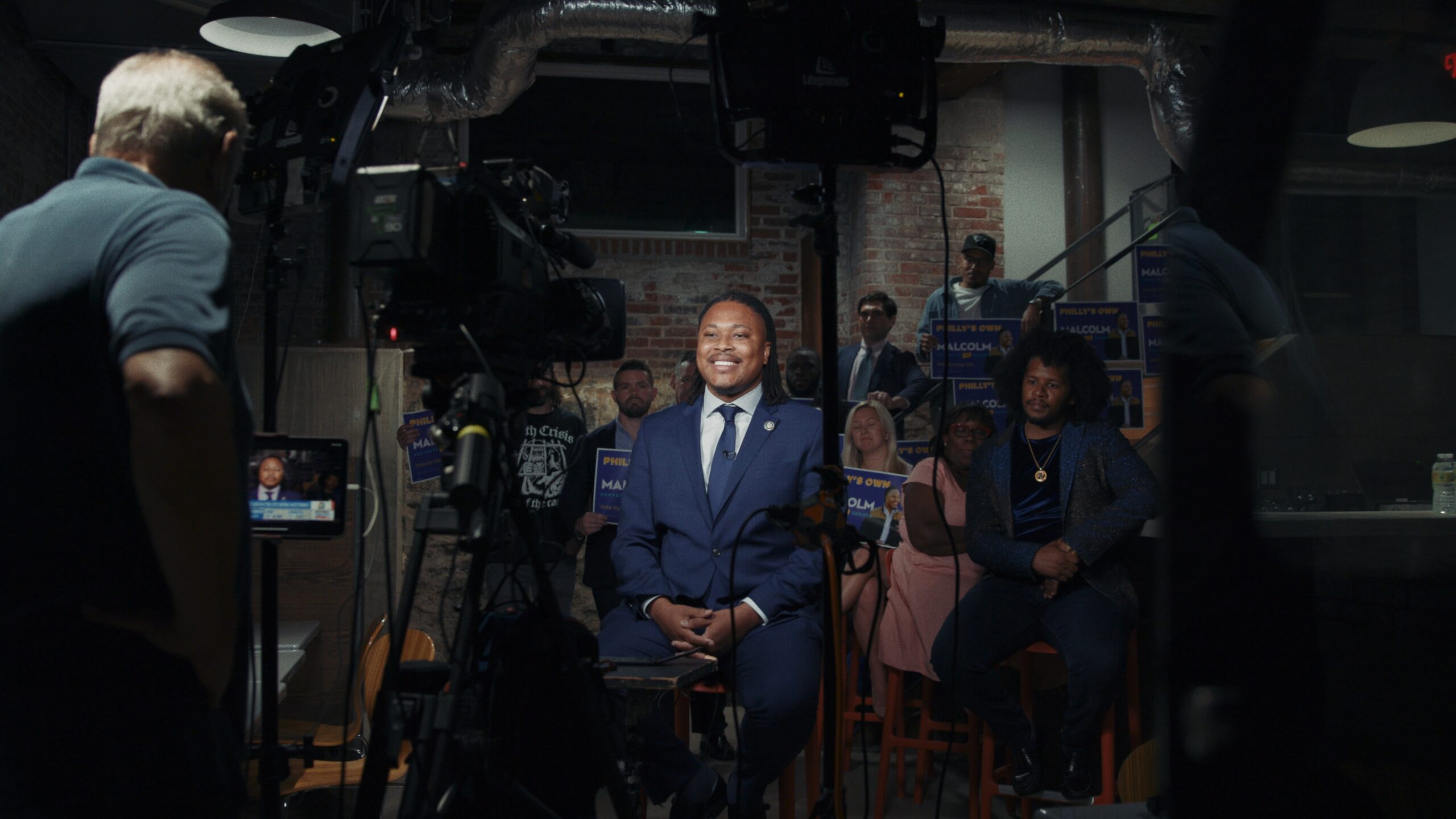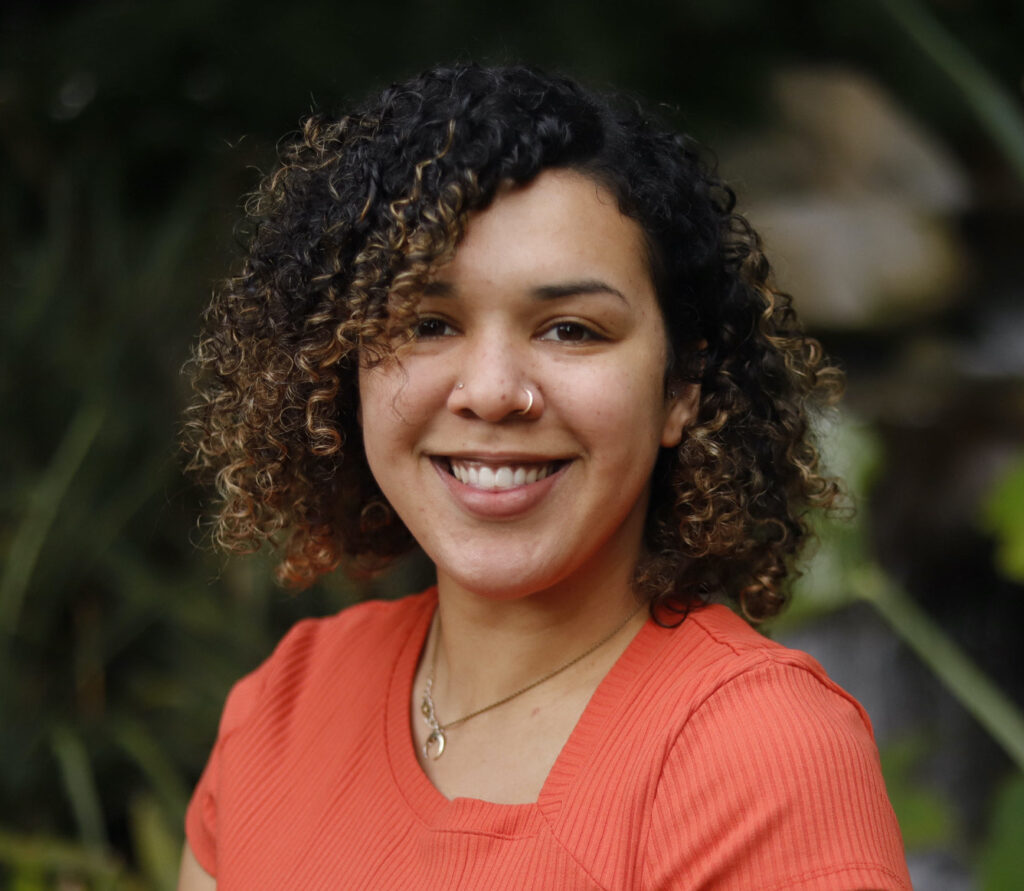
13 Jun Malcolm Kenyatta Documentary is a Love Letter to Philly
BY KELSEY BROWN
Despite the documentary Kenyatta: Do Not Wait Your Turn opening with Pennsylvania State Representative Malcolm Kenyatta in a suit, filmmaker Tim Harris is adamant it is more than a political film. While the film follows Kenyatta’s historic journey as the first openly gay Black man to run for Senate, Kenyatta says the documentary is more about people than politics.
“This film [is] really about a bunch of people who are in a neighborhood that’s scrappy, on a campaign that’s scrappy,” Kenyatta says in an interview with cinéSPEAK. “Even behind the scenes, there’s a film team that’s just as scrappy and gritty and figuring it out. That’s very special, and you feel that.”
Harris recalls initially pitching the documentary and being repeatedly met with the same question: “What if Kenyatta doesn’t win?” Spoiler alert: he doesn’t. But for Harris, it never mattered.
Of the 54 senators Pennsylvania has had, all of them have been white men. Win or lose, Harris says that through documenting Kenyatta, a “poor Black gay kid [from] Philly,” and his campaign, they “were watching history unfold.”
Al Roker, a co-host of NBC’s TODAY show and a producer for the documentary, screened an early version of the film and was inspired to help amplify the story. Roker echoed the sentiment about the film being unique in the realm of political documentaries, saying the film is about “real people connecting with real people.”
“People are looking for authenticity,” Roker tells cinéSPEAK. “Malcolm is as authentic as they get. At the end of the day, it’s a story of somebody who grew up in a neighborhood and is trying to fight for that neighborhood and that region.”
Through Kenyatta’s day-to-day encounters with the community he is from and serves (the 181st district in North Philadelphia), viewers get a well-rounded representation of life in Philadelphia. While news clips about the city often focus on disparity and violence–and there are moments within the film that touch on this–the film is more focused on community, showing kids dancing in the streets and connections within the community.
Kenyatta and Harris met while attending Temple University around 2010 when Kenyatta appeared as a host on Harris’ student-run comedy skit show. They reconnected in 2016 after Harris heard Kenyatta give a speech at a women’s march in Philly. Harris told Kenyatta to let him know if he decided to run for office, and two years later, he did.
The pair collaborated on the 2018 short documentary Going Forward, which follows Kenyatta’s run for the Pennsylvania House of Representatives. Kenyatta won the State Representative position with over 95% of the votes, a seat that he still holds.
Filming for Kenyatta: Do Not Wait Your Turn, which documents Kenyatta’s run for the U.S. Senate, started in 2020 and expanded through 79 days, resulting in almost 200 hours of footage. With limited financial support, the production was intimate. On most days, the crew included no more than five people. In the end, this served as a strength, creating an intimate relationship between crew members and participants.
“We had no money—very similar to Malcolm’s campaign in that way,” Harris laughs. “We had some verbal advocates but not too many people who wanted to give us money to make this. A lot of it was beg[ging], borrowing, and asking for favors from people that I’ve built up relationships with over the course of years in this business.”

As the son of a social worker and a home health aide who struggled to secure healthcare, Kenyatta exemplifies the power of those in decision-making spaces understanding the realities of those living in their districts. The film organically explores the core values Americans identify with when supporting politicians, through honest speculation from a running politician and the people he supports.
Kenyatta suggests in the film, “How about we let people who are closest to the pain be closest to the power?” From 2020 to 2022, Congress’ salaries went up while working-class people are still demanding a raise in the minimum wage. Kenyatta calls this “really problematic.”
“If we had enough people in office who understood that tenuousness that you can feel when you don’t have economic security and housing security, because of the color of your skin, or who you love, or how you show up in the world, then we would be focusing more on those issues,” Kenyatta says. “But instead, we are constantly forced to focus on what the most well-off and the most well-connected people say, because they have the capacity to pick up the phone and call a senator.”
Though Kenyatta didn’t win the Senate race, the film creates space to reimagine who belongs in politics. Now, Kenyatta is running for the 2024 race for the Auditor General for the state of Pennsylvania. For Kenyatta, the most rewarding part about participating in the film has come from daily interactions with people who were inspired to run for office because of his campaign.
Roker expanded on this point, saying he hopes that the film inspires young people to get involved, without backing by a political machine or super PACs, and in whatever sector they feel passionate about.
“You’re not going to change the system without being part of the system,” Roker says. “That’s what makes change. At all levels—from your local school board to your local zoning district to your local legislative boards. All of these are important. They all make a difference.”
The film has not gotten distribution yet, but Harris is hopeful. The film is screening in the Bay Area, virtually through the San Francisco Documentary Festival and at Frameline47 on June 15. On June 27, it will screen at the Roxbury International Film Festival in Boston.
Harris and Kenyatta are working to ensure that as many people are able to see the film as possible, especially those from Philly.
“This is a love story to Philly and to Pennsylvania,” Kenyatta says. “Folks in my district are people who are frustrated, but they’re never talking about giving up. They still have hope that tomorrow can be a little better than today was and that’s really special.”
*Featured Image: Image of Rep. Kenyatta beaming at a camera as his husband and supporters sit behind him in support. Courtesy of Tim Harris.

Kelsey Brown (she/her) is a freelance journalist and photographer based in Long Beach, California. Her words and photography have been featured in publications like Documentary magazine, Tagg magazine, and INTO More.

Sorry, the comment form is closed at this time.